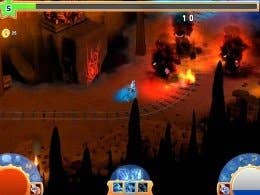Branching Out
Funcom's Trond Arne Aas and Jon Wright discuss the company's new entry into the kids' online space
It starts and ends in many ways with the product, I would say. The first phase we have now, of limited beta testing, goes to the heart of the fun factor and enjoyment that the kids will find with this product. It's relatively limited - we start testing it with a few thousand kids.
If we find that they enjoy themselves for a long time with this product, there will be ways for us to capitalise on that - you have a product that you can then market profitably.
If you look to Club Penguin I think the key thing for them was that they created a product that the kids actually enjoyed spending a lot of time in - and because of that it was possible for them to capitalise, and then move into the marketing phase.

That's very much the approach that we're taking - testing the product, testing longevity, testing the fun factor and then moving into the marketing phase.
There are several ways you can market this game - I think partner marketing will be a key factor for us, so basically linking up with the games portals where this target demographic are playing games, and then either doing marketing deals or revenue share deals with those partners.
And of course word of mouth is central to these games - getting the snowball effect.
Absolutely - that depends in the end on the market potential, and I think the expansion opportunities for the IP are huge. But we start with the product itself, and we have to test that it has the affinity with the kids - then you can create cards, collectibles, you can hook up with different toy manufacturers, and build the IP to a much broader thing if you're successful.
I totally agree, but for now we're focusing on making sure that the game works - that's the game-starter.
Absolutely. I think the interesting thing is looking at how some of the Facebook developers do things - they actually put some products out at a very early phase, and see if they catch on. Then they invest and adjust those products which seem to have the most potential.
Now, it's not that easy with a full-blown game, but there is definitely stuff there that we'll learn from and try to incorporate into what we do in this space.

One of the whole reasons that we started this initiative was that we saw some of the successful concepts in this space - like RuneScape, DOFUS, Habbo Hotel - those kinds of products grew organically year-by-year over quite an extended period.
The attraction of this model is that you don't have one big global launch where you spend x million Dollars and then see how successful the game was - here we will test, we'll adjust, and when we see that the average customer brings in more money that it costs to attract, that's when we'll ramp up marketing.
That's one thing - the second is that we're very open to everyone, but we do believe that in this space where we're making relatively small, focused bets on game concepts, we will need to develop several. Some of them will be successful, and some of them might not be hitting that nerve that you need in order to make them a success.
That's why it's also important for us that we're building a portfolio based on this engine that we have, that the engine is very modular and that it represents a low-cost opportunity for us to develop new concepts.
